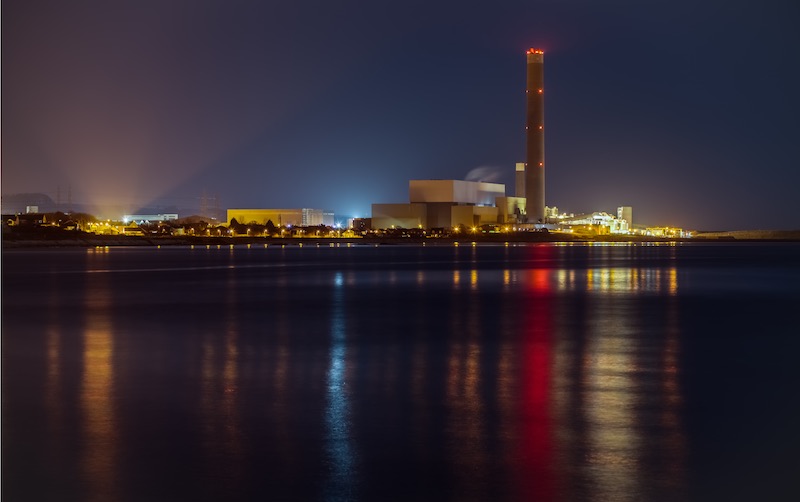Coal Plant in Northern Ireland to be Converted to Gas

Kilroot Power Station in Northern Ireland, one of the few remaining coal-fired power plants in the United Kingdom, will be switched to gas, its owners announced.
Czech energy group EP UK Investments, which acquired the plant from US firm AES last July, announced it had landed a 10-year contract for gas generation at the plant through the Irish energy capacity auction held in March.
The 520MW plant, which originally burned oil, has been operational since 1981. It seemed slated to shut in 2018 after it failed to secure a contract in the all-Ireland SEM (single electricity market) capacity auctions. It was later pulled back from the brink and won a new contract but was facing possible closure due to the environmental concerns. Kilroot isn’t subject to the wider UK’s commitment to close all coal power stations by 2024 because energy policy is devolved to Northern Ireland. However, Irish and Northern Irish transmission systems operators had indicated they expected the plant to close by that date anyway.
Instead, in a move which will incense environmentalists, it will be converted to generate electricity from gas.
A spokesperson for EP UK Investments said: “We are delighted that all units have been successful in the most recent T-4 auction meaning that new, flexible, low carbon gas generation can be developed on the Kilroot site.
“This will ensure the transition towards low carbon generation as well as protecting security and stability of supply for Northern Ireland through the continuation of indigenous generation.”
While environmental watchers will welcome the shuttering of another coal-fired power station, many have raised concerns about the UK’s growing reliance on natural gas, another fossil fuel. Natural gas does produce fewer emissions than coal— 78g of CO2 equivalent per kilowatt-hour versus 109g—but it has a substantially higher carbon footprint than renewable resources.
So while EPUKI can claim the converted Kilroot power station will be generating lower-carbon energy, its claim that it be low carbon is suspect. Low carbon resources typically include wind power (4gCO2e/kWh), solar power (6gCO2e/kWh) and nuclear power (4gCO2e/kWh).
With the conversion of Kilroot, the UK will have just three remaining coal power stations: two generating units at Drax, which are expected to stop burning coal from March 2021, and the West Burton and Ratcliffe-on-Soar power stations in Nottinghamshire. Two others, Fiddler’s Ferry in Warrington, Cheshire, and Aberthaw in Wales, closed at the end of March.
Coal is increasingly used simply to balance loads and in times of high demand in the UK. It provided just 1.9% of the UK’s electricity in 2019, and the country is currently in its longest period without using coal power since the Industrial Revolution: 32 days, 18 hours and counting.
Read on our blog

With the government poised to implement tough new measures to...

Budget broadband provider TalkTalk has been notifying customers via email...

A year-long investigation by charity Citizens Advice has revealed a...

Education Secretary Nadhim Zahawi has announced a new commitment to...
